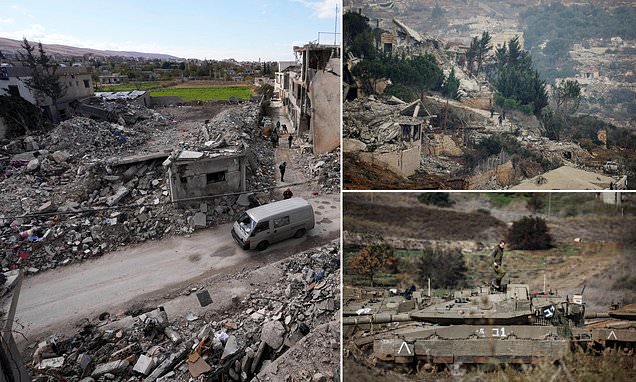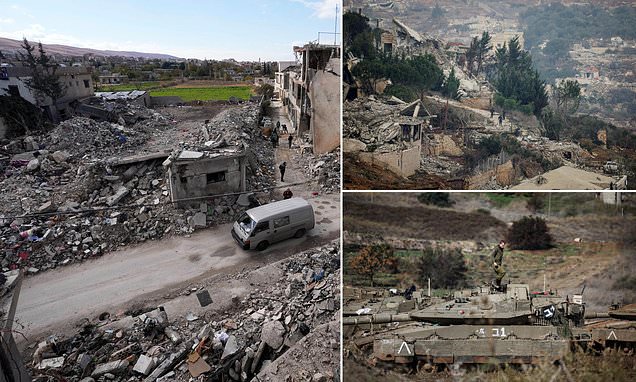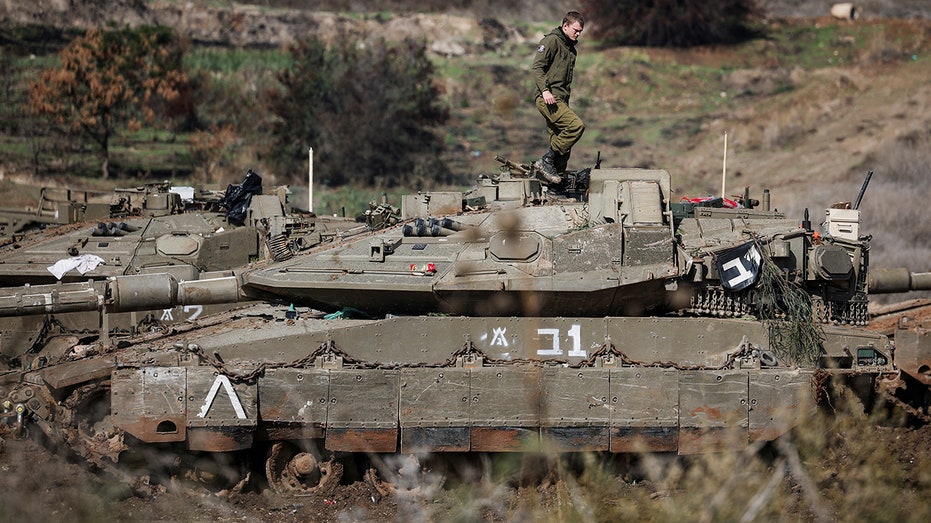
Ceasefire and Tensions Continue Between Israel and Hezbollah
By [Author Name] | Date: [Insert Date]
Israeli Forces Engage in Southern Lebanon
The Israel Defense Forces (IDF) reported on Thursday that they opened fire on “suspects” in Southern Lebanon, asserting these individuals had violated the terms of a freshly brokered ceasefire agreement between Israel and Hezbollah. This ceasefire, facilitated by the U.S. and France, was established earlier this week in an effort to halt months of escalating hostilities.
According to Avichay Adraee, the IDF’s Arabic Spokesperson, several suspects were spotted entering locations in Southern Lebanon in vehicles, prompting IDF engagement. He declared, “During the past hour, several suspects, some arriving in vehicles, were observed entering locations in southern Lebanon, breaching the ceasefire agreement.” This indicates that the IDF is actively enforcing the newly implemented ceasefire.
Military Warnings and Safety Zones
In light of recent tensions, both the Israeli and Lebanese militaries have urged displaced Lebanese citizens not to return to evacuated villages in Southern Lebanon until Israel completes its troop withdrawal. The ceasefire terms entail a two-month cessation of hostilities, the removal of Hezbollah’s armed forces from Southern Lebanon, and the relocation of Israeli forces back across the border.
Adraee shared a map on X (formerly Twitter) indicating a designated safe zone along the Israel-Lebanon border. “The IDF does not intend to harm civilians, but for now, it is prohibited to return to areas south of this line until further notice. Anyone crossing into this zone puts themselves in danger,” he warned, further emphasizing the precarious situation for civilians.
Casualties and Continued Hostilities
As the ceasefire agreement entered its second day, Israeli tanks targeted multiple locations within Southern Lebanon. Reports from Lebanese state media and security sources indicated that these actions resulted in the wounding of at least two individuals, emphasizing the ongoing tension despite the ceasefire.
While Hezbollah has seemingly adhered to the terms outlined in the ceasefire, their fighters remain on high alert, vowing to monitor Israeli troop withdrawals closely, “with their hands on the trigger,” according to Reuters.
Background of the Conflict
This latest conflict was ignited when Iran-backed Hezbollah launched strikes into Northern Israel in retaliation for Hamas’s coordinated attack on Israel on October 7, 2023. In the ensuing hostility, Israel claims to have targeted numerous high-ranking Hezbollah leaders, inflicting severe damage on the group’s infrastructure located in Lebanon.
Political Implications of the Ceasefire
Israeli Prime Minister Benjamin Netanyahu characterized the ceasefire as a strategic maneuver to isolate Hamas in Gaza. By curtailing clashes with Hezbollah, Netanyahu asserts that Israeli forces can redirect their efforts towards recovering hostages currently held by Hamas.
Return of Displaced Civilians
With the ceasefire in effect, thousands of displaced Lebanese citizens have begun returning to their homes. On Wednesday, many drove back to their villages with vehicles packed with personal belongings, eager to rebuild their lives despite widespread destruction.
Residents like Mohammed Kaafarani, who returned to the Lebanese village of Bidias, reflected on the turmoil of the past two months, saying, “The past 60 days have been nasty and ugly. There was nowhere left to hide.”
Fatima Hanifa, another resident from near Beirut, shared a similar sentiment, stating, “We lost everything—our livelihood and property—but it’s okay. We will rebuild.” Their determination contrasts sharply with the sentiments of many displaced Israelis who express lingering apprehensions about Hezbollah’s proximity and inadequate progress regarding hostage recovery in Gaza.
Concerns Persist Among Displaced Israelis
On the other side of the border, the atmosphere among displaced Israelis remains somber. Many are wary of returning to their homes, citing security concerns stemming from the Hezbollah threat and the ongoing hostage situation in Gaza. Eliyahu Maman, a displaced resident of Kiryat Shmona, voiced his concerns, stating, “It’s still not safe to return. Hezbollah remains too close for comfort.” This sentiment reflects the ongoing anxiety and uncertainty that pervades the region.


















